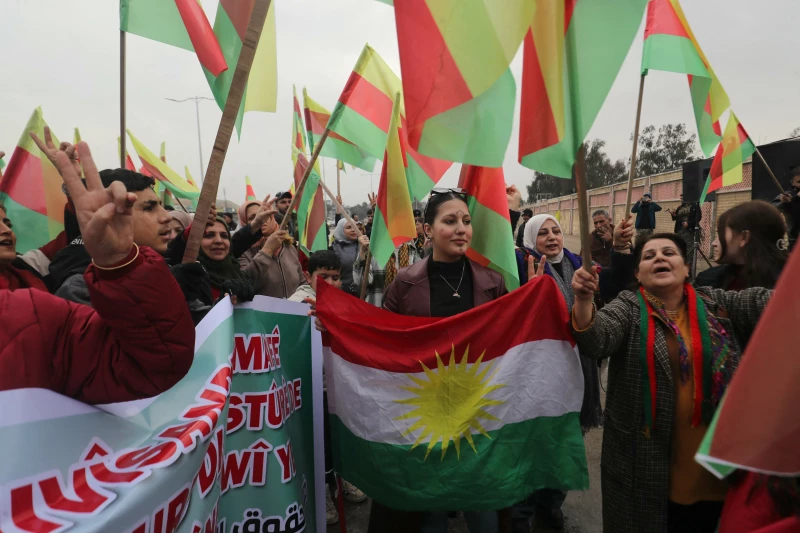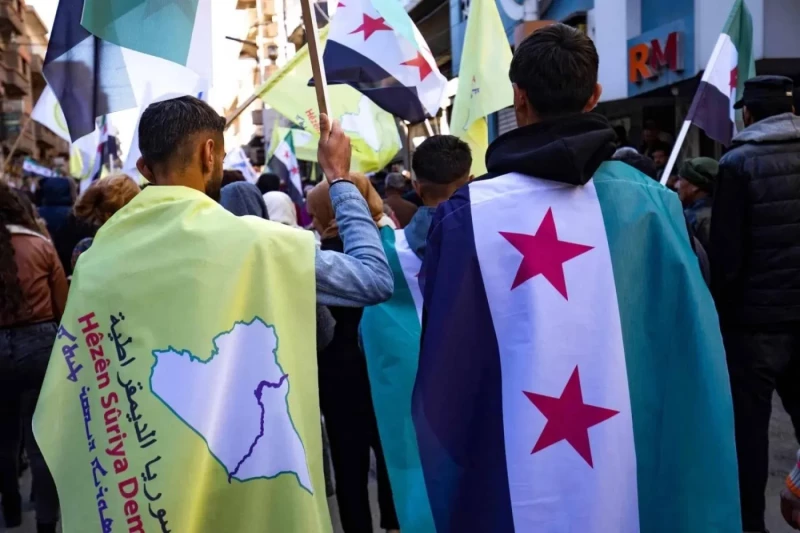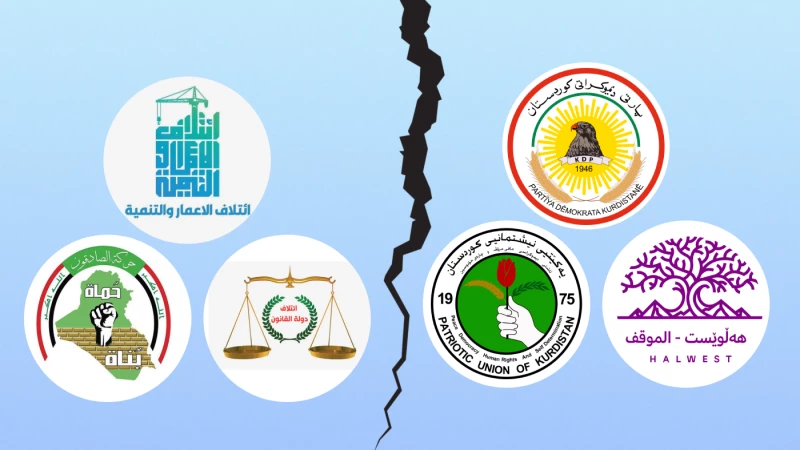The recent meeting between President Masoud Barzani and Mazloum Abdi, leader of the US-backed, Kurdish-led Syrian Democratic Forces (SDF) has drawn a lot of attention. As soon as photos of the leaders meeting in Erbil circulated quickly across the media, many people, who are concerned about our nation's issue, considered it a beacon of hope for Kurdish unity in an unstable regional landscape.
Although the meeting is important, and every Kurd has the right to benefit from President Barzani’s experiences, the issue does not stop here. There are still many ups and downs that require the wisdom and courage of the Kurds in northeastern Syria, the courage that the Syrian Kurds need to overcome symbolism and achieve some certainty to face complex geopolitical realities and domestic shortcomings with strategic foresight and to resolve them quickly.
The barrel of gunpowder heats up
The meeting comes at a time when the semi-autonomous enclave of northern Syria, controlled by the SDF, under the leadership of Mazloum Abdi, is in the midst of what I call the gunpowder barrel. The gunpowder is not limited to the Turks, but all the other parties together who are after destroying achievements Kurds have gained over the years. The new Syrian regime is also trying to join arms to become part of the war against the Kurds.
Most of us may not like it, but it must be said that the subsequent Turkish governments and their leaderships have long been willing to give priority to nationalist ambition over pragmatism.
Turkey's agenda is clear: to use every available excuse to suppress Kurdish aspirations in the region. From terrorism charges to claims of territorial integrity, Ankara has consistently sought to weaken Kurdish forces and limit their influence. This will create a hostile atmosphere for the Syrian Kurds, who must recognize that symbolic gestures alone will not be enough to counter this existential threat.
The importance of serious steps
While meeting with President Barzani sends a strong signal of solidarity to everyone, I am sure the President has given them a unique experience. No party in the region has sacrificed as much as the Kurds in this situation.
Therefore, the onus is on the Syrian Kurds themselves to take the initiative. Internal divisions and their strong adherence to the PKK's ideological line have created issues for the Kurdish cause in Syria. Open commitment to the PKK is an excuse for Turkey to attack the Syrian Kurds, something they will have to avoid. Although this does not solve the Turkish strategy against the Kurds in Syria, it does open the door for Kurdish allies and friends to cooperate.
It is not a matter of giving in to Turkey's demands, but of pragmatically recognizing and dealing with the unstable realities of the region.
Fragmentation among Kurdish groups only serves to weaken their collective bargaining power and make them more vulnerable to external threats. With a history of dealing with complex geopolitical challenges, Barzani can offer important guidance.
However, the ability to effectively support the Syrian Kurds depends on their willingness to unite and adapt to the changing dynamics of the region.
The role of the United States and foreign actors
Another important factor is the Syrian Kurds' reliance on foreign actors, especially the United States. While US support has played a key role in the fight against ISIS, we are naive to assume that this partnership is out of their loyalty to the Kurdish cause.
The US foreign policy is based on a transaction of US security losses, which involves constantly changing priorities and strategies.
For example, Washington’s need to counter Russian and Iranian influence throughout the Middle East, or to secure energy routes to Europe could lead to concessions for Turkey that undermine Kurdish aspirations.
NATO member Turkey has significant leverage in its dealings with the United States and other Western powers, whether through negotiations on its problems in NATO, or the Israeli-Arab issue.
The current geopolitical environment is characterized by shifting alliances and unpredictable power dynamics. Too much reliance on any single actor, be it the United States or another power, leaves the Kurds vulnerable to exploitation. Instead, the Kurdish leadership must adopt a multipronged approach that balances domestic consolidation with foreign diplomacy. This includes trying to have constructive dialogue with Turkey, despite the obstacles.
While it seems that Ankara may appear quieter now than before, it is relentlessly using diplomacy as an important tool to manage conflicts and prevent escalations. At the same time, the Syrian Kurds should actively engage with other regional and international powers, including Europe, Russia, and even the Arab League, to broaden their support base and reduce their dependence on any single actor.
The epidemic of pride
History provides many examples of the dangers of complacency in the face of existential threats.
The Kurds, who have made many sacrifices for us, need strategic foresight and adaptation. Pushing on the throne of past victories is harmful.
Today, the Syrian Kurds can act wisely if they want to, they can resolve their internal divisions and create a united front, and they can send a clear message to the region and the world that they will not be a threat to their neighbors.
The meeting between President Massoud Barzani and Mazloum Abdi is a positive step, a sign of solidarity and the ability to cooperate. However, it is Mr. Mazloum and his comrades who can do something that President Barzani and all Kurds can help them.
The road ahead for the Kurds in Syria is full of obstacles, from Turkey to the unpredictability of international coalitions.
However, with determination, vision, and unity, the Syrian Kurds can overcome these obstacles and ensure a bright future. President Barzani's presence and meeting with them was important and timely. It is, however, the job of the Syrian Kurds to take the initiative and pave the way for sustainable progress.

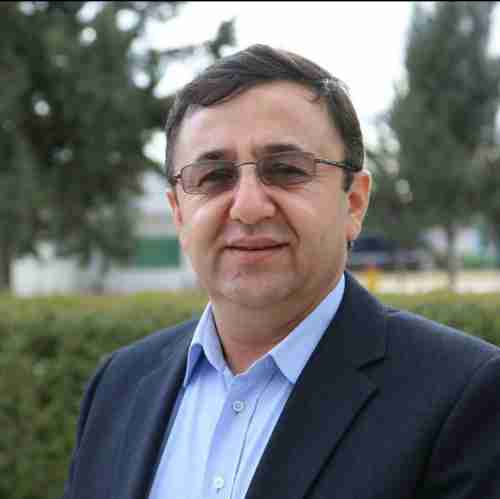
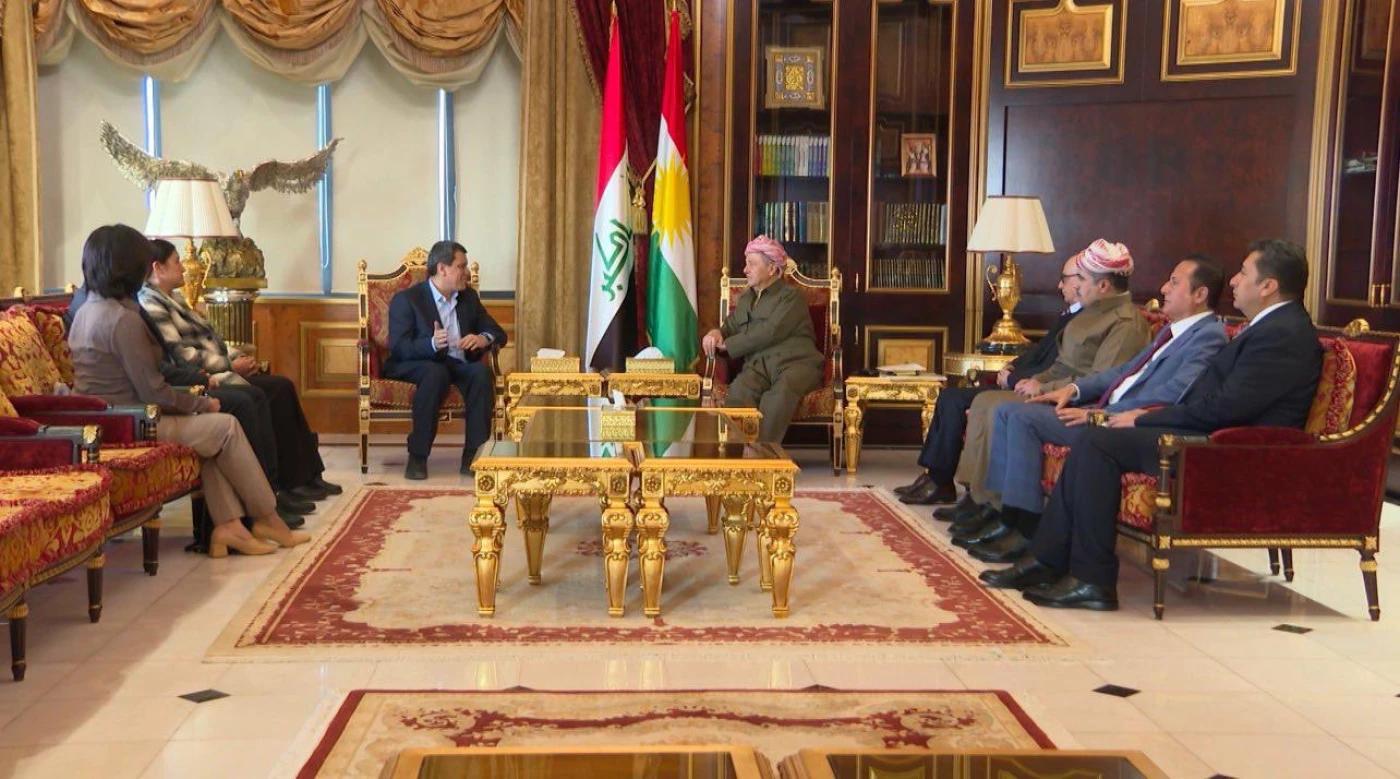
 Facebook
Facebook
 LinkedIn
LinkedIn
 Telegram
Telegram
 X
X
